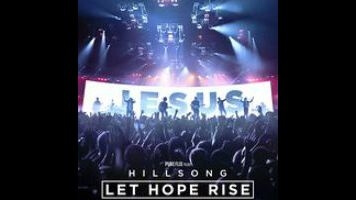But the odds of anyone wandering blindly into Hillsong: Let Hope Rise are, frankly, low. The movie’s website encourages youth pastors to bring their congregations en masse to screenings, and the interview subjects themselves admit that their audiences are typically shipped in by the busload. Maybe that’s why the mostly very young crowds that pack arenas for Hillsong United “worship experiences” receive these bland affirmations so rapturously: If the only time you ever got to hear music was in church, you, too, would practically have an orgasm watching some crappy break-dancing at the facsimile of a rock concert.
And just as they’re not concerts, this isn’t a film. It’s a “theatrical worship experience,” as the title card at the beginning of the documentary states. Viewers are encouraged to get caught up in the spirit of the thing, as the filmmakers put lyrics up onto the screen during the musical numbers so we can throw our hands up in submission and sing along. These musical numbers alternate with slick documentary segments, the first taking us back to Sydney, Australia, home of the Hillsong chain of Pentecostal megachurches from whence the band came. We don’t really get a good sense of place from this segment of the film, though, or how Hillsong became so big and powerful. As the church’s founder explains, they just really love Jesus and the energy was infectious and that was it. That’s typical of the interview portions of the film, which make vague gestures toward the difficult life circumstances that lead people to religion, but prefer to treat conversion itself as a magical experience after which everything falls into place.
Structurally, Hillsong: Let Hope Rise is hopelessly confused, jumping back and forth in time and space documenting the buildup to a big Hillsong United show at The Forum in Los Angeles, where the band will debut its new album. The ostensible tension comes from the fact that Joel, the band member responsible for the majority of the lyrics, is struggling with the burden of writing words that millions of fans will literally take as gospel. But the filmmakers sabotage themselves by including musical numbers from that same, wildly successful show at the beginning of the film, so we already know that everything turns out just fine.
Again, the good-looking and stylish stars of the film seem perfectly nice, humble, and earnest, and there’s no question that their faith and charitable works are real. But for a jaded and cynical nonbeliever, there’s one big caveat: The band members—at least the ones who give extensive on-camera interviews—were born into the church and therefore don’t question much of anything. They don’t question why they don’t make very much money—a point that is repeatedly hammered home throughout the film—even though their band is, by all accounts, phenomenally popular internationally. They’re in it for God, so it must be fine. They don’t question why the male band members’ wives must stay home and raise their children while they travel the world. Their (tired-looking) wives say they’re okay with it, so it must be fine. No matter: Look at this montage of people from multiple countries singing the same inspirational song! Under these circumstances, is it any wonder that this is a documentary as surface-level and shapeless as Hillsong United’s music?

